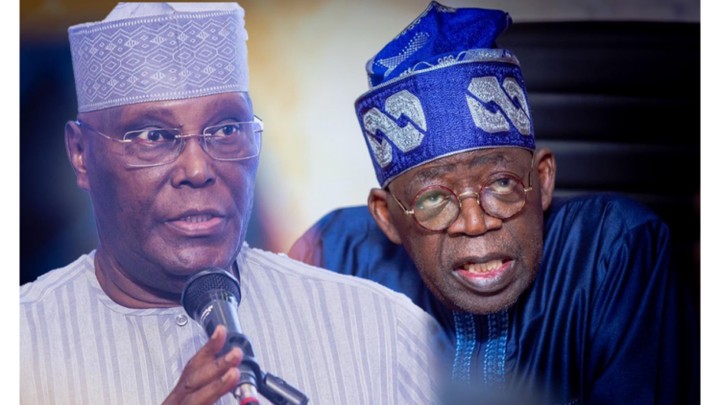In a significant development, the Presidential Election Petitions Court (PEPC) has issued its ruling on the allegations levied by Atiku Abubakar, the presidential candidate representing the Peoples Democratic Party (PDP). These allegations were directed at President Bola Tinubu, who belongs to the All Progressives Congress (APC).
At the heart of this legal dispute, Atiku accused Tinubu of holding dual citizenship and bearing a drug conviction record in the United States. These allegations stirred considerable attention and debate during the court proceedings.

Atiku, therefore, claimed that Tinubu was not qualified to contest the presidential election held on February 25.
But, a member of the panel of Justices of the Court, Justice Moses Ugo, while delivering judgement following objections raised by the All Progressives Congress (APC) and Bola Tinubu concerning Atiku’s claims, declared that the grounds of Atiku’s allegations were considered new issues, and, therefore, they could not be accepted as part of the petition.
The objections raised by the APC and Tinubu were upheld, as they argued that Atiku and the PDP had introduced new issues not previously pleaded in their petition regarding non-qualification.
Atiku, in his response to Tinubu’s challenge, contended that he was constitutionally barred from running for the office of President of the Federal Republic of Nigeria due to his forfeiture of $460,000 as part of a compromise agreement related to narcotics-related crimes. This forfeiture took place in the United States District Court, Northern District of Illinois Eastern Division.
It could also be recalled that Atiku claimed Tinubu had failed to disclose his dual citizenship, which included Nigerian and Guinean citizenship.
The Tribunal has dismissed both claims by Atiku.







